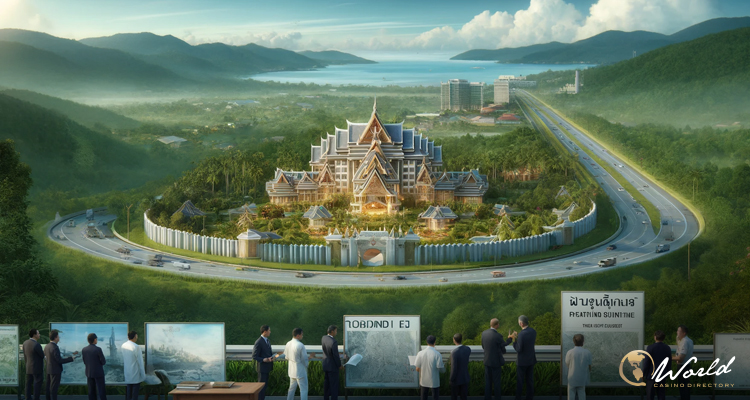Tourism operators in Thailand’s southern province of Songkhla, which borders Malaysia, are urging the national government to consider the establishment of a casino resort to bolster tourism during off-peak periods.
Hat Yai, the fifth-largest city in Thailand and located within Songkhla province, is situated approximately 216 kilometers (134 miles) by road from George Town, a popular tourist destination in Malaysia known for its significant Malaysian-Chinese population. Thailand is currently contemplating the legalization of casinos, which are often referred to as “entertainment complexes.” These complexes could potentially be sanctioned in strategic locations across the country to enhance tourism and drive economic development.
On Wednesday, the Bangkok Post reported comments from Songchai Mungprasithichai, president of the Songkhla Tourism Promotion Association, who highlighted that Ban Dan Nok and the area surrounding the Sadao checkpoint, a key entry point to southern Thailand, have significant potential to attract tourists interested in gambling activities.
Mr. Songchai noted that tourism in Songkhla is primarily concentrated in Hat Yai, as Malaysian visitors tend to skip over Ban Dan Nok. The Bangkok Post cited March data indicating that Songkhla province ranked only 10th in Thailand in terms of tourism revenue, generating THB3.7 billion (US$101.7 million).
“Even in Hat Yai, tourism flows are not as consistent as they used to be,” Mr. Songchai stated, as reported by the Bangkok Post. “Ninety percent of the foreign market hails from Malaysia during festivals, but now they have more choices than Hat Yai.”
He further mentioned that the demand for casino tourism in Songkhla “could be high,” given the significant number of tourists traveling to Genting Malaysia Bhd’s casino resort in Malaysia.
Part Of a Broader Discussion
The call for a casino in Songkhla aligns with broader discussions within Thailand about legalizing gambling to enhance the nation’s appeal as a tourist destination and boost economic growth. Proponents of the casino argue that such an initiative would not only attract more tourists but also create jobs and generate substantial revenue for the government.
Hat Yai’s strategic location near the Malaysian border is seen as advantageous. By drawing visitors from Malaysia and other nearby regions, the proposed casino could serve as a significant economic driver. The influx of tourists would likely stimulate local businesses, including hotels, restaurants, and retail shops, thereby contributing to the overall economic vitality of the area.
In recent years, Thailand has been exploring various strategies to rejuvenate its tourism sector, which has been adversely affected by global economic fluctuations and changes in travel patterns. The potential establishment of a casino resort in Songkhla is viewed as one of several measures that could help revitalize tourism and economic activity in the region.
The proposal has sparked interest among local business leaders and officials who see the potential benefits of such a development. However, it also raises questions about regulatory and social implications, which would need to be carefully considered by the government.
As discussions continue, stakeholders are keen to ensure that any decision regarding the casino project balances economic benefits with the need to address potential social impacts. The debate over casino legalization in Thailand is likely to persist, with significant interest from various sectors looking to capitalize on the opportunities it may present.



